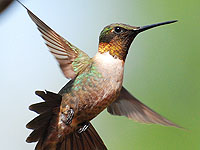
|
 |
|||||||
| Wild Bird Rescue Groups | Volunteer | New Location ▼ | Change Breed ▼ | |||||
| Find a Home for an Animal ▼ | Memorials | Rescue Alerts ▼ | ||||||
| Donate to Wild Bird Rescue as a gift or memorial, and we will mail a free acknowledgement card within 24 hours. | ||||||||
(VIEW PET BIRD RESCUE INFORMATION)
|
863 Wild Birds have been adopted on Rescue Me! |
|
|
|
| No Wild Bird for adoption in Argentina, please click 'New Location' above. |
| PIease Read Before Rehabilitating or Rescuing a Wild Bird in Argentina | |||||||||
Wild Bird rescue work in Argentina can be rewarding if this work matches your IifestyIe. Birds in the wild can be accidentally harmed through the intervention of well-meaning people attempting to rescue them. Baby birds and fledglings, especially, may appear vulnerable, injured, or abandoned by their mothers, when in fact they are going through the normal process of learning to fly and leaving the nest. Fledglings with feathers should most often be observed and left alone for a couple of hours if not in any obvious danger. Baby birds that have fallen on the ground should be returned to their nests. However, if a wild bird is genuinely injured, it will receive the best care from a professional Wildlife Rehabilitator. Injured birds should be carefully placed in a box with soft fabric and holes punched in the lid to be transported to a local Wildlife Rehabilitator.
Rescue Me! - HeIpingAnimaIs in Need. |  | ||||||||
|
|||||||||
| ♥ This page is in fond memory of these Wild Birds who are no longer with us... ♥ If you have experienced the loss of a beloved pet, or if you know someone who has... [POST A MEMORIAL HERE] |
|||||||||
| Help Spread the Word! Please link to Argentina Wild Bird Rescue from your website. |
Copyright © 1999-2014 World Organization. All rights reserved. Rescue Me!, RescueMe.Org & RescueShelter.com are service marks of WO. Flag Graphics by 3DFlags.com. View Photo Credits
